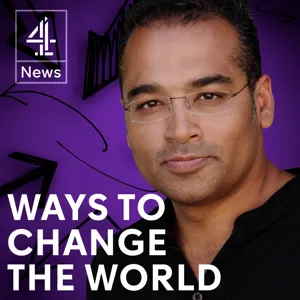Activist Gina Martin on changing the law on upskirting, ‘boys will be boys’, and the impact of online abuse

Gina Martin is best known as the driving force behind the Voyeurism Act, which made upskirting, or the taking of pictures under a person’s clothing without permission, a criminal offence in England and Wales, after she was assaulted at a music festival.
The gender equality activist is now working to teach people how to challenge problematic statements such as ‘boys will be boys’ and ‘not all men’, and have constructive conversations on social justice issues.
Today on Ways to Change the World, Gina Martin tells Krishnan Guru-Murthy about the lessons she has learnt since changing the law on upskirting, the importance of trans voices, the online abuse she has received and why the conversation around masculinity needs to change.
Produced by Silvia Maresca